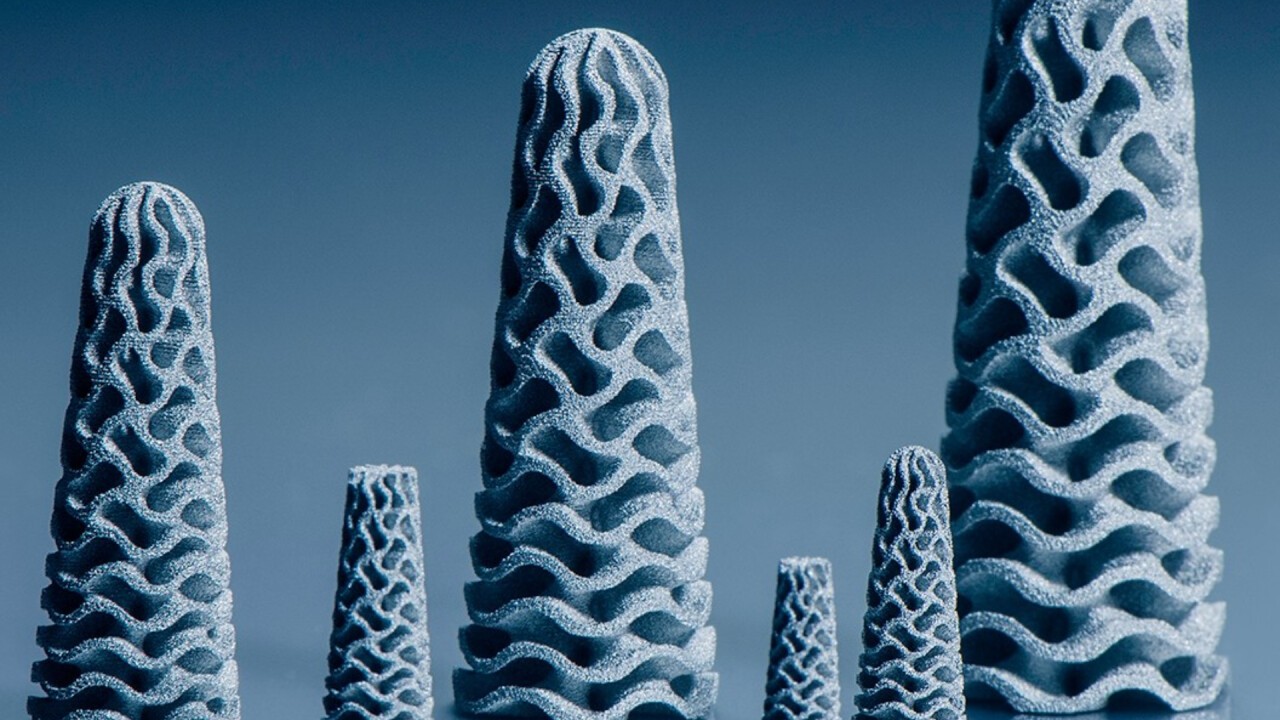Press release Rapid.Tech 3D 2024
Spotlight on the entire AM chain
AM Science by Fraunhofer Forum at Rapid.Tech 3D on 16 May. At Rapid.Tech 3D 2024, the Fraunhofer Competence Field Additive Manufacturing will highlight the services it provides by means of an oversized hand.
-

Projekt FingerKIt © Fraunhofer IAPT
At Rapid.Tech 3D 2024, the Fraunhofer Competence Field Additive Manufacturing will highlight the services it provides by means of an oversized hand. As well as representing the FingerKIt project, which is manufacturing the first-ever movable finger joint implants, the hand also symbolises the Fraunhofer’s overall philosophy of application-orientated, practical research. Researchers will present examples of current work in the additive manufacturing field at the AM Science by Fraunhofer Forum, which will be held on 16 May at the Rapid.Tech 3D specialist conference, and at the exhibition on all three days of the event.
First-ever fully automatable process for 3D-printing movable finger joint implants
The FingerKIt project mentioned above has involved five Fraunhofer Institutes working together to develop the first-ever fully automatable process chain for the manufacture of customised and movable finger joint implants – from design and production through to testing and certification. Dr Philipp Imgrund from the Fraunhofer Research Institution for Additive Manufacturing Technologies IAPT will report on the project at the forum.
“The presentation will explain what the Fraunhofer Competence Field Additive Manufacturing is all about. We look at the AM chain as a whole and undertake application-oriented research to support industrialisation. We focus on innovation in software, simulation, materials, technologies, post-processing and quality assurance. This is also reflected in the agenda for this year’s forum,” says Dr Bernhard Müller, spokesperson for the Fraunhofer Competence Field Additive Manufacturing and member of the Rapid.Tech 3D advisory board.
Accelerated simulation for optimal LPBF results
Thomas Töppel from the Fraunhofer Institute for Machine Tools and Forming Technology IWU will present a new software-based process chain for laser powder bed fusion (LPBF), demonstrating how simulations can be accelerated to optimise process parameters.
Shape memory polymer foams and bio-based foams
Presentations by Dr Dilip Chalissery from the Fraunhofer Institute for Applied Polymer Research IAP and Patrick Springer from the Fraunhofer Institute for Manufacturing Engineering and Automation IPA will be among the contributions demonstrating the close ties between individual links in the AM chain, such as innovations in materials and innovations in technology. Dr Chalissery will report on the programming of shape memory polymers in 4D printing. This enables specific functional changes to be induced in polyurethane foams if certain environmental parameters change. In the future, it will also be possible to “programme” other materials, thus expanding the potential applications of 4D printing.
Patrick Springer will present a novel extrusion-based additive manufacturing process that uses a bio-based polymer filament loaded with a physical blowing agent. This makes it possible to produce low-density polymer foams that could not previously be 3D printed.
Alternative AM processes and detection of defects with AI
Timo Schröder from the Fraunhofer Institute for Casting, Composite and Processing Technology IGCV will focus on how to determine transition zone parameters between different materials in multi-material laser melting. In addition to powder bed-based laser beam melting (LPBF) –, the dominant process for additively manufacturing metal components – there are alternatives that enable non-weldable materials to be processed, thus eliminating one of the weaknesses in the LPBF process. Dr Thomas Studnitzky from the Fraunhofer Institute for Manufacturing Technology and Advanced Materials IFAM will provide an overview.
As well as developments in software, materials and technology, the spotlight is increasingly on fast and reliable test methods for quality assurance of additive processes. Artificial intelligence (AI) is playing a growing role in this, as Luke Schüller from the Fraunhofer Institute for Laser Technology ILT will demonstrate. His presentation will provide an insight into LPBF quality assurance methods; he will also present a new method for detecting defects in the LPBF process using a high-resolution line scan camera and a pre-trained neural network.
Visitors will be able to view and discuss examples of all the topics presented and other AM developments at the Fraunhofer Competence Field Additive Manufacturing exhibition stand.
About the Fraunhofer Competence Field Additive Manufacturing:
The Fraunhofer Competence Field Additive Manufacturing comprises twenty Fraunhofer Institutes across Germany that focus on different aspects of additive manufacturing and together map the entire process chain.
More at: www.additiv.fraunhofer.de/en.html
About Rapid.Tech 3D:
Over the course of two decades, Rapid.Tech 3D – with its centrepiece specialist conference – has become one of Central Europe’s leading AM trade events. This year’s event will be held from 14 to 16 May at Messe Erfurt. More at: www.rapidtech-3d.de/en/
About Messe Erfurt GmbH:
Central Germany’s largest trade show and conference venue, Messe Erfurt has established itself as a forum for businesses, scientists, doctors, trade unions and many other institutions. Every year, it hosts over 220 events, conventions, conferences, trade fairs, exhibitions, corporate events and concerts, attracting over 650,000 visitors. More at: www.messe-erfurt.de/en/